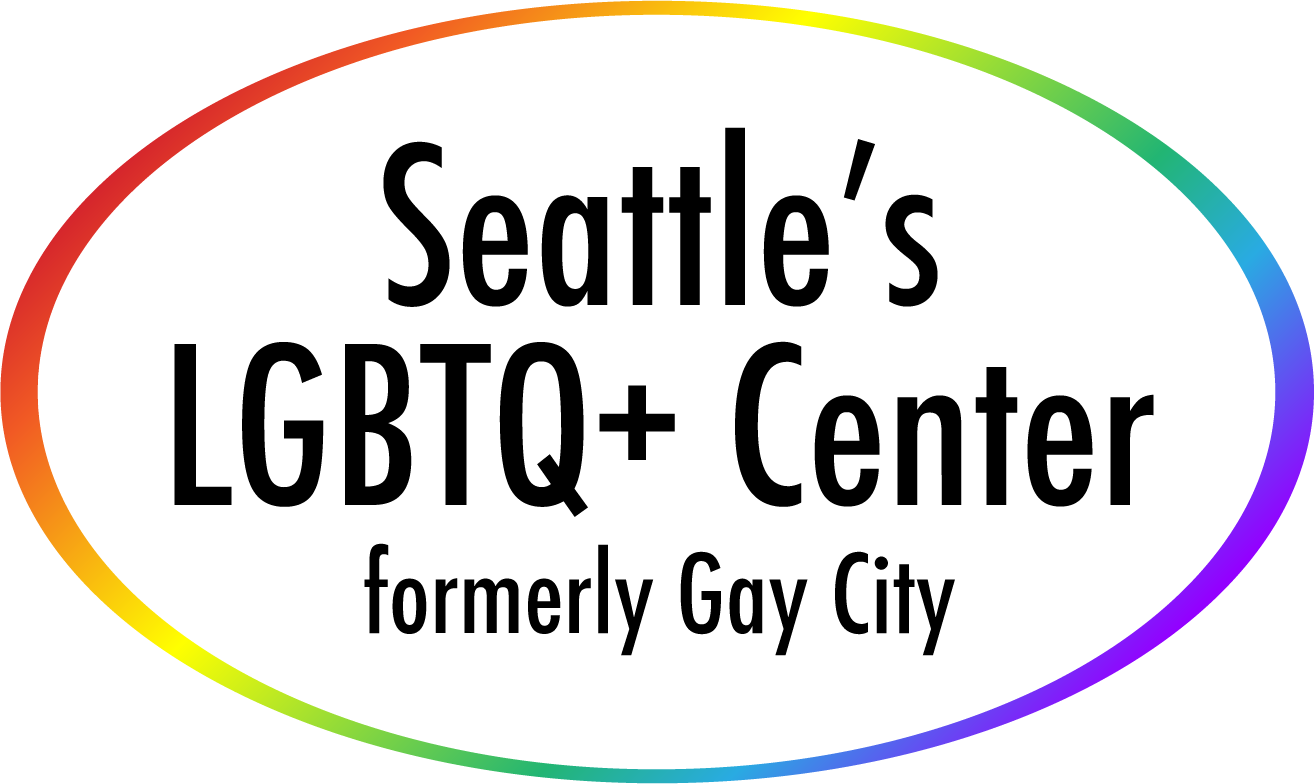Access to Change
About Access To Change
Access to Change is an online diversion program run by Seattle’s LGTBQ+ Center (formerly known as Gay City) that supports youth and families of all orientations/gender identities who have encountered the criminal legal system. All meetings will be held virtually. To make sure that all youth can access the program we offer youth internet support and tablets if needed. The program is facilitated with a trauma-informed, anti-violence analysis, our diversion team is made up entirely of Black T/GNC staff and youth co-leads, and we will collaborate with each participant to draft their own self-accountability and self-determination action plans.
Access to Change was created by Lady Anderson, Maisha Manson, Daynon Jackson, and Jenna Robert of the City Seattle Attorney’s Office in 2021. Indigo Magenta and August Rivers have enhanced the program overtime with best-practice approaches in multi-cultural competency, trauma-informed approaches, and overall support to participants.
Who Is Eligible For Access To Change?
Eligible participants are determined by the Seattle City Attorney’s Office. This program is focused on young people ages 18-25 and specific to domestic violence between family members.
What Type of Diversion Program Is AtC?
Access to Change is a pre-filing diversion program. Pre-filing is an important distinction because it ensures participants can maintain the same level of access to jobs, services, and institutions, which might otherwise be affected by an arraignment or criminal record.
Occasionally the Seattle City Attorney’s Office will find some individuals who could benefit from the program and are referred to Access to Change as post-filing diversions. Participants who are referred after their charges are in court will navigate the same process as pre-filing participants.
What Happens in the Program and How Long Does It Take?
The program consists of a 5-week workshop series (one workshop per week), happening as a cohort of up to 5 participants. In the 5 weeks participants will learn to identify and set goals that build self-determination and self-accountability, establish action plans for those goals, and determine the resources necessary to accomplish those action plans.

Access to Change works with participants to build self-determination and centered self-accountability and move in a direction they find most supportive for their lives. Participants already practice self-determination and self-accountability and benefit from learning new skills and information that ground them in their values and clarify the choices they wish to make. We share information about the Butterfly of Self-Determination (see above) and Centered Self-Accountability with the accountability tool Zero to 1000 (see below). More can be learned about Centered Self-Accountability from Shannon Perez-Darby at accountablecommunities.com

Afterward, we do skill-building that supports self-determination and self-accountability. We also share the concepts and practices of support planning, safety planning, pod mapping, boundary setting (focusing on four skills to set and maintain boundaries: name it, direct it, repeat it, end it), personal motivational interviewing, and resource finding.
What Outcomes Can Participants Expect?
Participants exit the program with a self-determined goal towards an issue impacting their life, strengthened skills, more knowledge on what is impacting them and how, and resources to help achieve their goals.
Completion of the workshop series ensures that charges are not filed, or are dropped for post-filing participants. Dropped charges will still appear on records, participants will need to take action to expunge their records.
Why Should People Participate?
Participation in the program ensures that charges are not filed, or are dropped. Participants are also supported in the program with flexible financial assistance to support attendance and address barriers to success, resource referrals, and given access to a tablet and internet hotspot to participate in the program, and post-program check-ins (if desired) to provide additional support.
Quotes From Participants
“I am really glad we’re doing this program together because at times I might not think things through or write things down, but maybe I will after this”.
“Feeling pretty good about them [the session], learned a bit more about myself that was nice”
” ..it’s an accomplishment for myself to show up and commit to learning from Access to Change program..I have been learning and applying these lessons to my life”
Why are Diversion Programs Important?
We recognize that The Criminal Justice system is designed to oppress, enslave, and deter radical behavior by QTBIPOC communities toward empowerment and well-being. Its effects are long-lasting, damaging the health and wellness of the communities we live in and serve. The criminal legal system is an inefficient system designed to reduce harm but ultimately perpetuate it through all communities regardless of race and socioeconomic status.
ATC was designed with a targeted universalism framing around the experiences of BIPOC (Black, Indigenous, and People of Color) T/GNC (Trans/Gender non-conforming) youth to address the most significant equity barriers, which allows us to best support all of our diverse communities with their distinct cultural needs.
The program helps to reduce recidivism, promote positive community connections, and support the well-being of individuals and families who have been impacted by the criminal legal system.
What Happens if I Miss a Session?
If a participant is unable to attend a session and doesn’t communicate with us beforehand, we’ll reach out. If we still don’t hear from them after 7 days, we’ll assume they are not able to complete this program and will wait for the participant to contact us to resume participation. A person’s leave of absence delays their process in the program and does not change the deadline before the alleged charge is filed in court.
Who Runs the Program?
Access to Change is facilitated by Seattle’s LGBTQ+ Center staff in collaboration with the Seattle City Attorney’s Office.
Emails from us use “@gaycity.org” as the domain name. Calls from us use (206)573-4593.
Once a person is referred to the program they may receive an invitation letter from the Seattle City’s Attorney’s Office. The letter may reach the person by hand-off while in police custody, mail, or email depending on the contact information collected during the arrest and before release from police custody.



